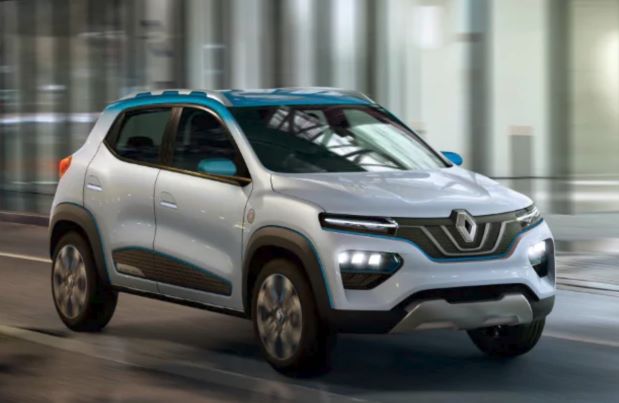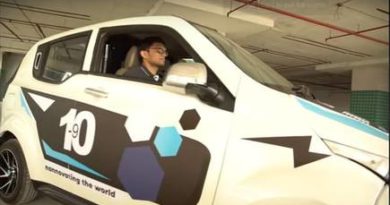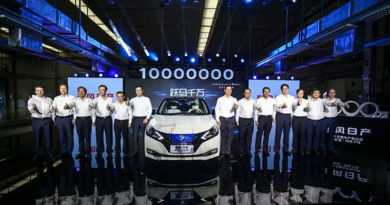Renaults Launches K-ZE For China while India Awaits EV Policy
 India' Kwid is Chinese K-ZE
India' Kwid is Chinese K-ZE
At Paris Motor show, Renault reaffirmed China’s might by nudging India. It is launching its latest all-electric and affordable K-ZE car with a range of 250 kms in China. The vehicle will be manufactured locally by the e-GT New Energy Automotive Co, the Joint Venture with Dongfeng Motor Group and Nissan, created to develop and produce competitive electric vehicles specifically for the Chinese market.
The salt to the injury, Renault’s first affordable electric vehicle, is designed out of its technical centre in Chennai and Indian engineers here have modified the all-electric K-ZE car to meet the environmental regulations put in place by the Chinese.
Driving home an important point, Carlos Ghosn, Chairman and CEO of Renault, spoke of the obvious gap between India and China at an event in Paris this week. Even though India’s intent is at the right place, he added that carmakers are businessmen, and volumes drives their Businesses. “There are 27 million cars sold in China and 4 million in India,” Ghosn pointed.
Renault had announced in its mid-term plans last year that it will launch an affordable electric car in India, but that promise is yet to fructify.
To pacify the Indian dream of ‘Make In India’, Renault is planning to make India the hub for emerging market products after the success of Kwid in South Africa and Latin America. This might soothe the sentiments a bit by creating jobs here but the in long run all these parts will go out for cars elsewhere, meaning that it may further delay selling better cars here and continue to sell somewhere else. According to the senior official at the Paris Motor Show, the company also plans to source 95 per cent of the parts for its future models from local parts suppliers.
This however does not take away the fact that car makers have been waiting for India to decide on an EV Policy. The delay and lack of clarity on EV Policymay have been a contributor here. The lack of ecosystem in India in comparison to China is evident in many aspects of the EV Market.
First the volumes sing the Chinese tune as mentioned earlier. Then comes the lack of Electric Vehicle charging infrastructure. Government sops have been placed in order to get things moving, but the glacial speed throws off the whole implementation process.
China, on the other hand, has been at the forefront in its electric mobility drive with over half a million cars produced last year and the number tipped to grow five times by the end of this decade. This also puts in perspective why companies like Renault are betting big on China to drive their electric agenda. Even Europe will have to wait till 2021 for models like the K-ZE where the overall market size will still be much smaller than China. It is logical to assume that India will also be part of this drive, going by what Renault has articulated in its five-year strategic plan ending 2022, but this will again be on a far lower scale.
China has gone the extra mile in defining a roadmap for itself as a global automotive giant. Chinese auto-makers are constantly on the prowl for opportunities to increase scale. Whether its Geely with acquisitions like Volvo Cars or Dongfeng who helped to bail out a once struggling Peugeot Citroen through infusion of equity. Likewise, General Motors got a lifeline from longtime Chinese ally, SAIC Motor, when it was nearly wiped out after the Lehman crisis.
So Chinese have been working and improving their moves for quite sometime, while India has to start from scratch. First to develop its market, Invest in capacities, build its supply chains and create demand, all while keeping the electric vehicles attractively priced for its people to buy.




